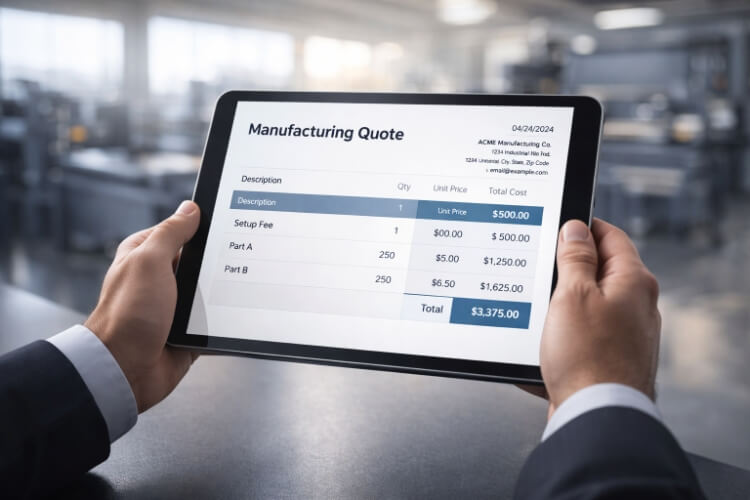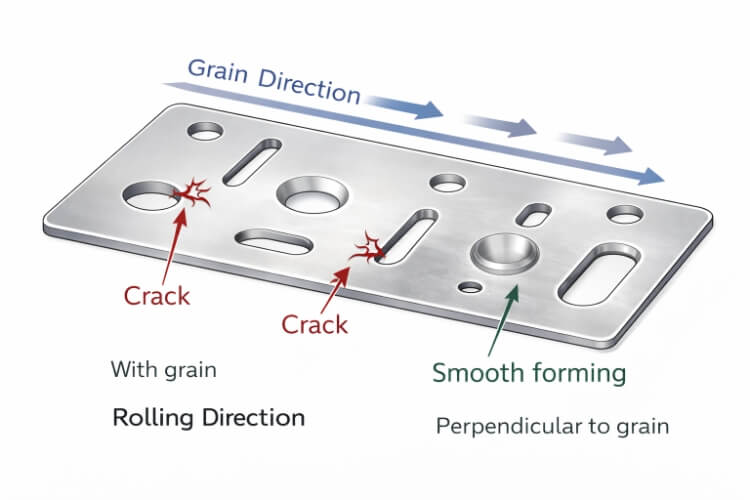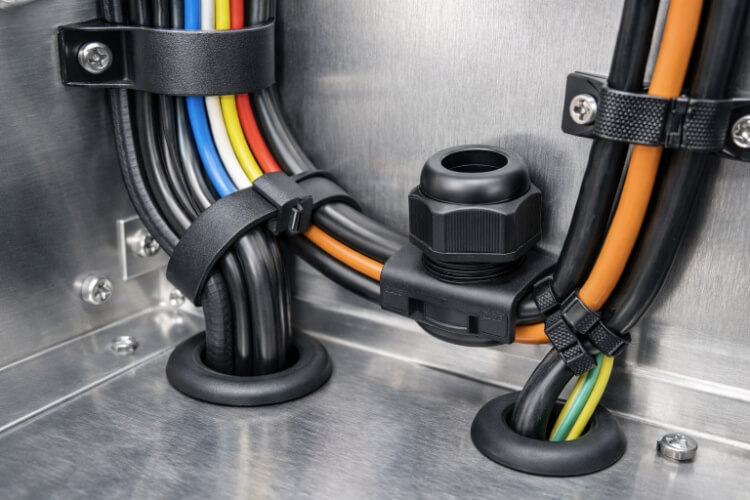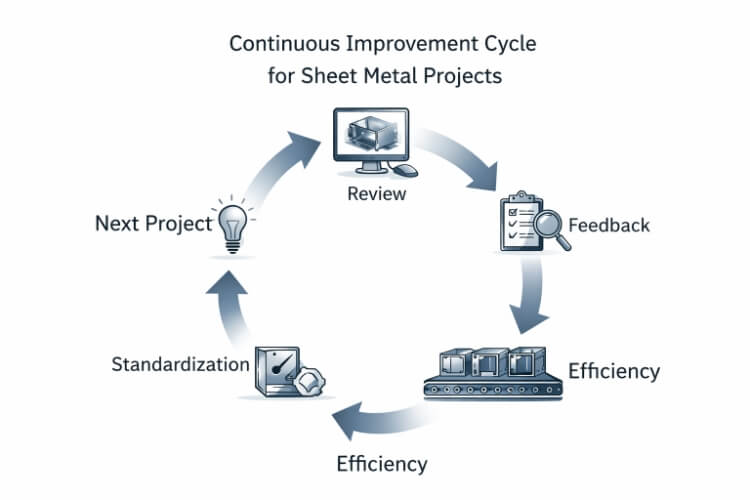Are you looking for a reliable way to achieve high-quality and accurate machining results? CNC precision machining is an ideal method for producing parts quickly and precisely. It offers excellent accuracy and is widely used in many industries for its efficiency.
This article will discuss the key aspects of CNC precision machining, the types of machines used, and their benefits for your business. Whether you’re an engineer, designer, or small business owner, you’ll find valuable information on how this method can improve your manufacturing process.
What is CNC Precision Machining?
CNC Precision Machining stands for Computer Numerical Control Machining. It is a manufacturing process where pre-programmed computer software controls the movement of factory tools and machinery. This process can control a range of complex machinery, from grinders and lathes to mills and routers.
The principle behind CNC machining is automation. Instead of manually operating the machines, a computer controls them. This allows for precise, consistent, and repeatable movements. The computer follows a set of instructions known as G-code, which dictates the machine’s actions, such as where to move, how fast to go, and what path to follow.
Step-by-Step Guide to the CNC Precision Machining Process
Have you ever wondered what goes into creating a precision part? Follow this step-by-step guide to understand how CNC machining transforms raw materials into high-quality components.
Step 1: Design and Engineering
The process begins with creating a detailed design of the part using CAD software. Engineers define the dimensions, shapes, and features of the part.
Step 2: CAM and CNC Programming
Once the design is finalized, it is imported into CAM software. Here, the design is converted into G-code, the language CNC machines understand. The CAM software generates toolpaths, which guide the machine in cutting, drilling, or shaping the material.
Step 3: Setup of CNC Machine
Before machining begins, the CNC machine must be set up. This involves securing the raw material (workpiece) onto the machine bed using clamps or fixtures. The appropriate cutting tools are selected and installed. The machine is then calibrated to ensure it follows the programmed instructions precisely.
Step 4: CNC Machining Operations
With the setup complete, the CNC machine starts the machining process. It follows the G-code instructions to cut, drill, or shape the workpiece. The machine moves the tools along the programmed paths, removing material layer by layer.
Step 5: Post-Processing and Finishing
After machining, the part may require additional steps to meet final specifications. This can include deburring, polishing, or applying surface treatments like anodizing or painting.
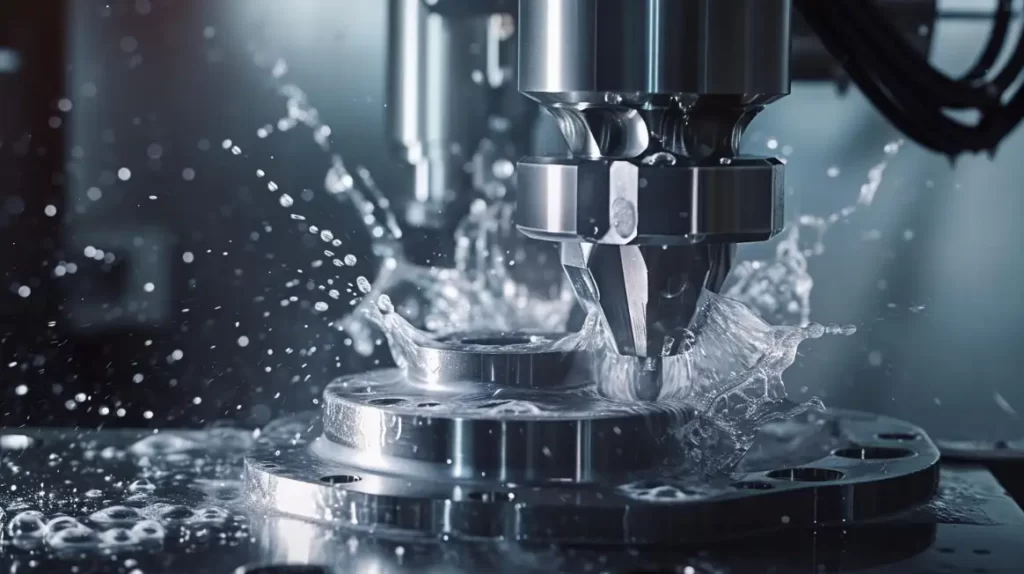
Types of Precision CNC Machines
Understanding the different types of CNC machines is key to choosing the right one for your project. Let’s explore the most common CNC machines.
CNC Milling Machines
CNC milling machines use rotating tools to remove material from a workpiece. The machine can move the tool or the material in multiple directions. This allows it to create complex shapes and features. CNC milling is highly versatile and offers precise results.
CNC Turning and Lathes
CNC turning machines, called lathes, rotate the workpiece while a cutting tool shapes it. This method is ideal for making cylindrical parts, like shafts and gears. CNC lathes are known for their speed and precision.
CNC Drilling Machines
CNC drilling machines create holes in materials by rotating a drill bit. The machine moves the bit into the workpiece to make precise holes. It ensures that holes are made with accuracy and repeatability.
Electrical Discharge Machines (EDM)
EDM uses electrical sparks to shape hard materials. The machine slowly removes material to form the desired shape. EDM is ideal for making parts with intricate features or rigid materials.
CNC Plasma Cutting Machines
CNC plasma cutting machines use a plasma torch to cut through metals. The machine follows a precise cutting path guided by the CNC system. Plasma cutting is excellent for cutting thick metals and creating large parts.
CNC Precision Grinding Machines
CNC precision grinding machines use abrasive wheels to grind and finish parts. The machine removes tiny amounts of material to achieve a smooth surface. CNC grinders are used when parts need a fine finish.
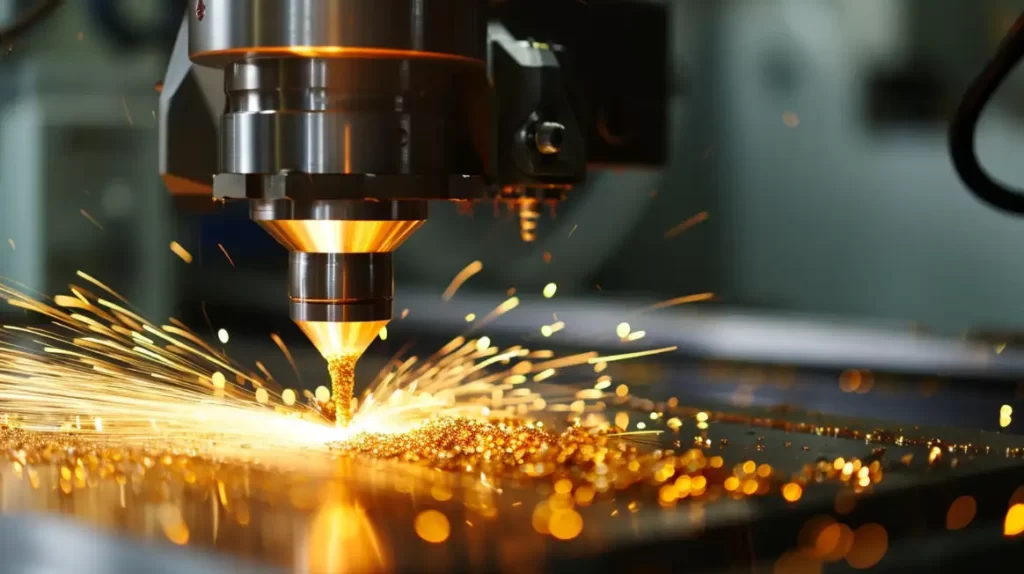
Key Benefits of CNC Precision Machining
CNC precision machining offers several key benefits that can enhance your manufacturing process. Let’s examine how it delivers high accuracy, faster production, and reliable part quality.
High Accuracy and Precision
CNC precision machining offers high accuracy. The machine follows exact instructions from the computer, reducing human mistakes. This results in parts that match the design perfectly every time.
Faster Production Times
CNC machining speeds up production. Once the program is set, the machine can work without stopping, cutting down the time needed to make each part.
Reliable Part Quality
CNC machining produces parts with consistent quality. The automated process ensures that each part is identical to the last, reducing the risk of defects.
Flexibility in Production
CNC machines are highly flexible. They can work with many materials and create a wide range of parts. Whether you need a few custom components or a large batch of the same part, CNC machining can handle it.
CNC Machining Materials
Choosing the right material is crucial for successful CNC machining. Let’s explore the most common metals and plastics used in the process and how they impact your project’s outcome.
Metals
Metals and alloys are commonly used in CNC machining for their strength and durability. Machining these materials requires special tools, usually diamond-coated carbides, to handle their hardness.
Common metals used in precision machining include:
- Aluminum: 6061, 7075, 2024
- Steel: 1018, 4140, 1045, A2, D2
- Stainless Steel: 304, 316, 17-4 PH
- Titanium: Ti-6Al-4V
- Copper: C101, C110
- Brass: C360, C260
- Bronze: C932, C954
- Inconel: 718
- Monel: 400
Plastics
Plastic machining can be tricky due to its sensitivity to heat. This slows production speed compared to metals. Carbide-cutting tools are usually used when working with plastics.
Common plastics used in CNC machining include:
- Nylon: 6, 6/6, Oil-filled Nylon
- ABS
- Polycarbonate (PC)
- Polyethylene
- Polyoxymethylene (POM) or Acetal
- PTFE & Filled PTFE (glass, carbon, bronze)
- Polyether Ether Ketone (PEEK)
- Acrylic (PMMA)
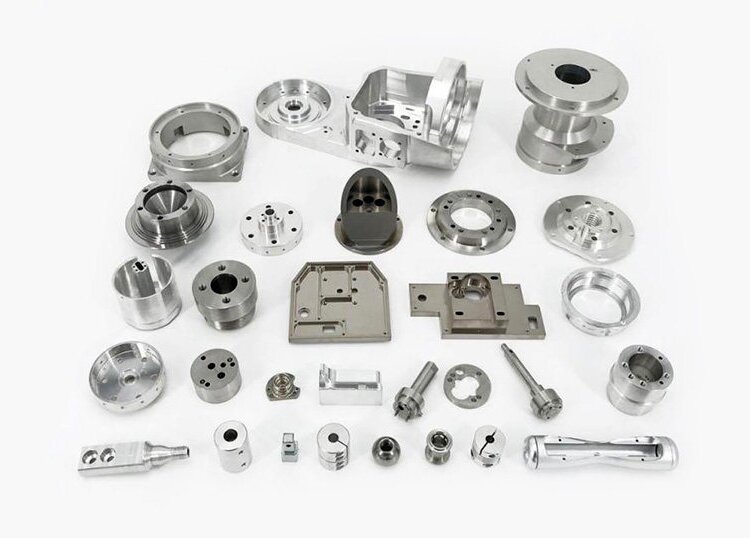
Applications of CNC Precision Machining
CNC precision machining is essential in many industries, providing the accuracy needed for critical components. Let’s explore how it benefits industries.
Aerospace Industry
CNC precision machining is vital in the aerospace industry. It produces parts that must meet high safety and performance standards. Components like engine parts, landing gear, and structural elements require precise manufacturing.
Automotive Industry
In the automotive sector, CNC machining creates engine components, transmission parts, and custom fittings. The process allows for the production of complex shapes with tight tolerances, ensuring parts fit perfectly and perform reliably.
Medical Devices
The medical industry relies on CNC machining to produce precise and biocompatible components like surgical instruments, implants, and diagnostic equipment. Materials such as stainless steel and medical-grade plastics are commonly used.
Electronics and Consumer Goods
CNC machining is key to manufacturing electronics, such as smartphone components, circuit boards, and connectors. It is also used to create consumer goods like custom casings, fittings, and decorative items.
CNC Machining Tolerances and Quality Control
Precision is the heart of CNC machining. Let’s explore how tight tolerances are achieved.
Understanding Tolerances in CNC
Tolerances in CNC machining refer to the allowable variation in a part’s dimensions. Tight tolerances depend on machine precision, tool quality, and material properties. Advanced CNC machines and skilled programming and calibration ensure parts meet these strict requirements.
How tight tolerances are achieved:
- Use high-precision CNC machines with advanced calibration.
- Select the right cutting tools and materials.
- Optimize machining parameters like speed and feed rates.
- Regularly maintain and inspect equipment to ensure accuracy.
Quality Assurance in CNC Machining
Quality assurance ensures every part meets the required standards. This involves rigorous checks at every stage of the machining process.
Methods for ensuring high-quality outputs:
- Use precision measuring tools like calipers and micrometers.
- Perform in-process inspections to catch errors early.
- Conduct final inspections to verify part dimensions and finish.
- Implement ISO standards and other quality management systems.
Conclusion
CNC precision machining offers unmatched accuracy, speed, and flexibility across various industries. From aerospace to medical devices, it ensures high-quality parts with tight tolerances. Businesses can achieve reliable and cost-effective results by choosing the right materials and maintaining quality control.
Ready to take your project to the next level? Contact us today for expert CNC machining services and get a free quote!
Hey, I'm Kevin Lee

For the past 10 years, I’ve been immersed in various forms of sheet metal fabrication, sharing cool insights here from my experiences across diverse workshops.
Get in touch

Kevin Lee
I have over ten years of professional experience in sheet metal fabrication, specializing in laser cutting, bending, welding, and surface treatment techniques. As the Technical Director at Shengen, I am committed to solving complex manufacturing challenges and driving innovation and quality in each project.

